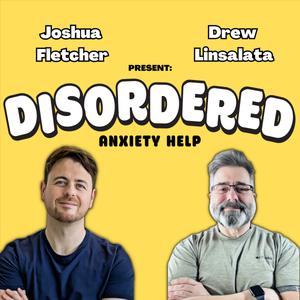
Disordered: Anxiety Help
Josh Fletcher and Drew Linsalata
Disordered is the podcast that delivers real, evidence-based, actionable talk about anxiety and anxiety and anxiety recovery in a kind, compassionate, community-oriented environment. Josh Fletcher is a qualified psychotherapist in the UK. Drew Linsalata is a therapist-in-training in the US. They're both bestselling authors in the anxiety and mental health space. Josh and Drew are funny, friendly, and they have a knack for combining lived experience, formal training, and professional experience in an encouraging, inspiring, and compassionate mental health message.
- 40 minutes 9 secondsI Get So Anxious When I'm Sick! (Episode 91)
"When I am ill, my anxiety goes through the roof!"
Does this sound familiar? Many people struggling with disordered anxiety will say that if they get sick or feel unwell (i.e. a cold, a sore throat, the flu, etc.) they find that they are extremely anxious. If you experience this struggle, its not just you.
This week Drew and Josh are examining the mechanics behind your over-productive threat monitoring system and why being sick or unwell can often push you into high alert mode with your anxious mind constantly scanning, measuring, evaluating, and worrying about how you feel moment to moment.
Anxious people are generally terrible at tolerating discomfort and uncertainty, and that nasty sinus infection that has you down is probably also doing a good job of triggering both of those things.
Here's a spoiler alert (but listen anyway) ... choosing to actively involve yourself in persistent worry and body scanning and evaluating your safety when sick is not keeping you any safer or making you feel any better. Get the medical support you might need of course, but once you have your plan and you've DONE all you can do ... its time to practice tolerating that feeling of discomfort, the fear, and the uncertainty.
---
Disordered Roundtables are here. Think of it as "Disordered Live", a way for members of our audience to spend time with us in an intimate virtual setting (attendance is limited) to engage in real time sharing and discussion on specific anxiety disorder and recovery topics. To be notified when new Disordered Roundtable sessions are scheduled, visit our homepage and get on our mailing list.
---
Struggling with worry and rumination that you feel you can't stop or control? Check out Worry and Rumination Explained, a two hour pre-recorded workshop produced by Josh and Drew. The workshop takes a deep dive into the mechanics of worrying and ruminating, offering some helpful ways to approach the seemingly unsolvable problem of trying to solve seemingly unsolveable problems.
https://bit.ly/worryrumination
-----
Want to ask us questions, share your wins, or get more information about Josh, Drew, and the Disordered podcast?
20 December 2024, 8:23 am - 39 minutes 59 secondsHelp! I'm In An Anxiety Spiral! (Episode 90)
"Spiraling" is one of the terms heard quite often in the community of people struggling with anxiety disorders.
There's a trigger like a thought or a sensation, then in short order you feel completely out of control, being dragged down into the pit of fear where you thrash about trying to make it stop but failing and just feeling worse and worse.
This week on Disordered we're taking a closer look at what it really means to spiral. Is it a spiral, or an endless loop? Are you really out of control? What makes it feel that way? How do our old friends shock, attention, and resistance factor in here?
If you find yourself often triggered into "spiraling", this might be the episode for you. Check it out!
---
Disordered Roundtables are here. Think of it as "Disordered Live", a way for members of our audience to spend time with us in an intimate virtual setting (attendance is limited) to engage in real time sharing and discussion on specific anxiety disorder and recovery topics. To be notified when new Disordered Roundtable sessions are scheduled, visit our homepage and get on our mailing list.
---
Struggling with worry and rumination that you feel you can't stop or control? Check out Worry and Rumination Explained, a two hour pre-recorded workshop produced by Josh and Drew. The workshop takes a deep dive into the mechanics of worrying and ruminating, offering some helpful ways to approach the seemingly unsolvable problem of trying to solve seemingly unsolveable problems.
https://bit.ly/worryrumination
-----
Want to ask us questions, share your wins, or get more information about Josh, Drew, and the Disordered podcast?
13 December 2024, 8:15 am - 44 minutes 35 secondsAnxiety Recovery: How Important Is Attention? (Episode 89)
How important is the concept of attention in driving an anxiety disorder and influencing the recovery process?
VERY important!
This week on Disordered we're up to our usual hijinks but also we're digging into the idea that attention - choosing to pay very close attention to how one feels and what one is thinking - is the primary driver of disordered anxiety. And if this is true - which we say it is - then working on moving your attention elsewhere even when that feels risky or unsafe or impossible would logically be a key component in the recovery process.
This episode is a great companion to our Shock Attention and Resistance episode (episode 78) so if you haven't heard that one, check it out first, then come back and have a listen to this one.
Naturally we're also sharing contributions from the community surrounding Disordered and tossing in some silly jokes and a healthy dose of understanding and compassion. Pull up a chair, or a pillow, or whatever, and join us for a while.
---
Disordered Roundtables are here. Think of it as "Disordered Live", a way for members of our audience to spend time with us in an intimate virtual setting (attendance is limited) to engage in real time sharing and discussion on specific anxiety disorder and recovery topics. To be notified when new Disordered Roundtable sessions are scheduled, visit our homepage and get on our mailing list.
---
Struggling with worry and rumination that you feel you can't stop or control? Check out Worry and Rumination Explained, a two hour pre-recorded workshop produced by Josh and Drew. The workshop takes a deep dive into the mechanics of worrying and ruminating, offering some helpful ways to approach the seemingly unsolvable problem of trying to solve seemingly unsolveable problems.
https://bit.ly/worryrumination
-----
Want to ask us questions, share your wins, or get more information about Josh, Drew, and the Disordered podcast?
6 December 2024, 8:15 am - 47 minutes 27 secondsAnxiety, ACT, and The Happiness Trap w/ Dr Russ Harris (Episode 88)
The struggle in an anxiety disorder is seen in two almost automatic responses to anxiety - we either obey it and do what it tells us we must do, or we resist it by trying to fight it, argue with it, and wish it away over and over.
This week on Disordered Dr. Russ Harris - one of the world's leading advocates for Acceptance and Committment Therapy (ACT) - is here to chat about the principles of ACT, how we get hooked by anxiety, fear, and anxious thoughts, and how this can lead to a smaller and smaller life over time.
We're even using some of Josh's personal experiences with anxiety as a mini case-study viewed the the ACT lens. And as usual, the episode is sprinkled with healthy doses of light-hearted humor and kind acknowledgement of what is an almost universal struggle for humans around the world.
Thank you to Russ Harris for making time for us! To find out more about Russ and ACT:
If you are a therapist or clinician interested in being trained in ACT:
---
Disordered Roundtables are here. Think of it as "Disordered Live", a way for members of our audience to spend time with us in an intimate virtual setting (attendance is limited) to engage in real time sharing and discussion on specific anxiety disorder and recovery topics. To be notified when new Disordered Roundtable sessions are scheduled, visit our homepage and get on our mailing list.
---
Struggling with worry and rumination that you feel you can't stop or control? Check out Worry and Rumination Explained, a two hour pre-recorded workshop produced by Josh and Drew. The workshop takes a deep dive into the mechanics of worrying and ruminating, offering some helpful ways to approach the seemingly unsolvable problem of trying to solve seemingly unsolveable problems.
https://bit.ly/worryrumination
-----
Want to ask us questions, share your wins, or get more information about Josh, Drew, and the Disordered podcast?
29 November 2024, 8:15 am - 40 minutes 11 secondsMeasuring Anxiety Disorder Recovery (Episode 87)
How can you tell if you're getting better? How do you measure or at least see progress when working on recovery from an anxiety disorder? What happens if you're "doing it anyway" but not seeing progress?
This week on Disordered we're looking at the "green flags" of anxiety recovery. What are the signs that tell you that you're making progress even when you might feel like you're not? How much of recovery is found in just doing it anyway? What if you're already doing it anyway and don't feel like you're making progress?
Josh and Drew are answering some of these questions with reminders about the real targets of recovery, shifting attitudes, willingness to come into contact with difficult internal experiences, and steering clear of Craig the Critic when he insists that you're doing it all wrong and never getting better.
---
Disordered Roundtables are here. Think of it as "Disordered Live", a way for members of our audience to spend time with us in an intimate virtual setting (attendance is limited) to engage in real time sharing and discussion on specific anxiety disorder and recovery topics. To be notified when new Disordered Roundtable sessions are scheduled, visit our homepage and get on our mailing list.
---
Struggling with worry and rumination that you feel you can't stop or control? Check out Worry and Rumination Explained, a two hour pre-recorded workshop produced by Josh and Drew. The workshop takes a deep dive into the mechanics of worrying and ruminating, offering some helpful ways to approach the seemingly unsolvable problem of trying to solve seemingly unsolveable problems.
https://bit.ly/worryrumination
-----
Want to ask us questions, share your wins, or get more information about Josh, Drew, and the Disordered podcast?
22 November 2024, 8:15 am - 46 minutes 9 secondsAnxiety, Caffeine, Alcohol, and Cheeseburgers (Episode 86)
Do you have to give up coffee, tea, wine, pizza and cake to recover from an anxiety disorder? Well ... if you ask the Internet and consult general wellness influencers this question you're going to get answers that tend to collide with best practices among well trained therapists and counselors.
No, you do not have to give up your favorite foods and drinks to get better. You may choose to structure your diet and your lifestyle around making overall healthy choices that align with your values and belief. That's always a good thing.
But if you are avoiding things you generally like or enjoy in an effort to micro-manage your body or totally avoid experiencing natural thoughts, emotions, and sensations because you fear them ... this episode of Disordered is for you. It is in fact possible to fully recover from your anxiety disorder while also eating cheeseburgers and drinking wine. These things are not mutually exclusive!
---
Disordered Roundtables are here. Think of it as "Disordered Live", a way for members of our audience to spend time with us in an intimate virtual setting (attendance is limited) to engage in real time sharing and discussion on specific anxiety disorder and recovery topics. To be notified when new Disordered Roundtable sessions are scheduled, visit our homepage and get on our mailing list.
---
Struggling with worry and rumination that you feel you can't stop or control? Check out Worry and Rumination Explained, a two hour pre-recorded workshop produced by Josh and Drew. The workshop takes a deep dive into the mechanics of worrying and ruminating, offering some helpful ways to approach the seemingly unsolvable problem of trying to solve seemingly unsolveable problems.
https://bit.ly/worryrumination
-----
Want to ask us questions, share your wins, or get more information about Josh, Drew, and the Disordered podcast?
15 November 2024, 8:15 am - 45 minutes 51 secondsObsessive and Compulsive? (Episode 85)
This week on Disordered we're starting with the assertion that all anxiety disorders are obsessive and compulsive in at least some way. Then we make our way through all the "usual suspects"
- Panic disorder
- Health anxiety
- Social anxiety
- GAD
- OCD (obviously)
We're looking at the obsessional components of each anxiety flavor, and the corresponding common compulsions or rituals designed to easy anxiety and discomfort.
If you're worried because you think you have one type of anxiety ... and also OCD ... don't worry. While the usual "we're all a little OCD" thing is really awful and should be banned forever, within the context of anxiety disorders there are always obsessive and compulsive tendencies at play.
Also, shout out to selective mutism, which is officially an anxiety disorder according to the DSM-5 but has never been mentioned on this podcast before. Spoiler alert: neither Drew nor Josh had anything constructive to say in that moment because neither has any experience with that presentation. Sorry, selective mutism.
---
Disordered Roundtables are here. Think of it as "Disordered Live", a way for members of our audience to spend time with us in an intimate virtual setting (attendance is limited) to engage in real time sharing and discussion on specific anxiety disorder and recovery topics. To be notified when new Disordered Roundtable sessions are scheduled, visit our homepage and get on our mailing list.
---
Struggling with worry and rumination that you feel you can't stop or control? Check out Worry and Rumination Explained, a two hour pre-recorded workshop produced by Josh and Drew. The workshop takes a deep dive into the mechanics of worrying and ruminating, offering some helpful ways to approach the seemingly unsolvable problem of trying to solve seemingly unsolveable problems.
https://bit.ly/worryrumination
-----
Want to ask us questions, share your wins, or get more information about Josh, Drew, and the Disordered podcast?
8 November 2024, 8:15 am - 40 minutes 3 secondsListener Questions About Anxiety and Recovery (Episode 84)
This week Josh and Drew are answering questions from Disordered listeners.
- How to deal with the shame associated with anxiety and recovery when a partner or spouse isn't terribly supportive.
- How do re-gain confidence in oneself?
- What happens if you don't remember what non-anxious you was like?
- What about flushing, feeling hot, and getting goosebumps when anxious?
- I'm an introvert. What do I do when I want to go home to re-charge? Is that avoidance?
- What about when you're facing possible medical issues and it triggers anxiety?
- What about anxiety symptoms that are disruptive and I don't know how to manage them or stop them? What is that? If its a panic attack, how do I stop it?
As always, this episode includes some wins from the community, and healthy helpings of humor and compassion.
---
Disordered Roundtables are here. Think of it as "Disordered Live", a way for members of our audience to spend time with us in an intimate virtual setting (attendance is limited) to engage in real time sharing and discussion on specific anxiety disorder and recovery topics. To be notified when new Disordered Roundtable sessions are scheduled, visit our homepage and get on our mailing list.
---
Struggling with worry and rumination that you feel you can't stop or control? Check out Worry and Rumination Explained, a two hour pre-recorded workshop produced by Josh and Drew. The workshop takes a deep dive into the mechanics of worrying and ruminating, offering some helpful ways to approach the seemingly unsolvable problem of trying to solve seemingly unsolveable problems.
https://bit.ly/worryrumination
-----
Want to ask us questions, share your wins, or get more information about Josh, Drew, and the Disordered podcast?
1 November 2024, 7:15 am - 39 minutes 40 secondsAnxiety Disorders - Primary vs Secondary Fear (Episode 83)
This week Drew and Josh are talking about secondary fear.
When triggered into an anxious state by thoughts, sensations, or anything else, we ALL experience a jolt of fear or discomfort. This is primary fear and its simply part of being human. Overcoming an anxiety disorder is not about removing this natural, healthy response to possible threats. People struggling with anxiety disorders will often make the mistake of trying to turn off the primary fear response to feel better.
But if you want to overcome disordered and chronic states of anxiety, you want to work on turning down the secondary fear response. This is the response that makes you afraid ... or being afraid. Secondary fear is what we call it when you misinterpret primary fear as itself dangerous and begin to take evasive action to get away from, manage, stop, or prevent this internal experience. Secondary fear - and acting to keep secondary fear alive - is what really drives the disordered state.
Tune in to hear a discussion about how to play charades with your amygdala and how to respond to its "call to perform" in a way that lets you slowly turn down that secondary fear response bit by bit over time. As usual, we're adding some humor and a dose of patience and kindness as is needed in any process that involves doing scary, difficult things on purpose.
---
Disordered Roundtables are here. Think of it as "Disordered Live", a way for members of our audience to spend time with us in an intimate virtual setting (attendance is limited) to engage in real time sharing and discussion on specific anxiety disorder and recovery topics. To be notified when new Disordered Roundtable sessions are scheduled, visit our homepage and get on our mailing list.
---
Struggling with worry and rumination that you feel you can't stop or control? Check out Worry and Rumination Explained, a two hour pre-recorded workshop produced by Josh and Drew. The workshop takes a deep dive into the mechanics of worrying and ruminating, offering some helpful ways to approach the seemingly unsolvable problem of trying to solve seemingly unsolveable problems.
https://bit.ly/worryrumination
-----
Want to ask us questions, share your wins, or get more information about Josh, Drew, and the Disordered podcast?
25 October 2024, 7:15 am - 43 minutes 31 secondsWHY Did I Develop An Anxiety Disorder? (Episode 82)
Everyone that develops an anxiety disorder wants to know why that happened. Why do some people develop disorders while others are anxious and stressed all the time without ever developing a disorder issue?
Excellent question, and one that nobody would blame you for asking.
This week on Disordered we're exploring the origins of anxiety disorders, why they develop, what makes us more vulnerable to this, why symptoms and scary thoughts happen, and the relationship between stress (inevitable in life) and disordered anxiety.
We're also looking at how there can be many contributing factors that might trigger development of an anxiety disorder, but paradoxically directly addressing those factors is not usually the way to get out of the state you find yourself in. First we "turn off the tap" (tune in for more on this) and learn to stand up on our own, then addressing contributing factors and working on overall wellness and good relapse prevention strategies and skills can - and often do - become part of the plan.
---
Disordered Roundtables are here. Think of it as "Disordered Live", a way for members of our audience to spend time with us in an intimate virtual setting (attendance is limited) to engage in real time sharing and discussion on specific anxiety disorder and recovery topics. To be notified when new Disordered Roundtable sessions are scheduled, visit our homepage and get on our mailing list.
---
Struggling with worry and rumination that you feel you can't stop or control? Check out Worry and Rumination Explained, a two hour pre-recorded workshop produced by Josh and Drew. The workshop takes a deep dive into the mechanics of worrying and ruminating, offering some helpful ways to approach the seemingly unsolvable problem of trying to solve seemingly unsolveable problems.
https://bit.ly/worryrumination
-----
Want to ask us questions, share your wins, or get more information about Josh, Drew, and the Disordered podcast?
18 October 2024, 7:15 am - 44 minutes 16 secondsLearning To Be Bored in Anxiety Recovery (Episode 81)
Anxious people in recovery from chronic or disordered anxiety can find themselves bored ... and this is often a problem. This week on Disordered we're talking about learning to be bored. Yes, we have to learn how to be bored, which can be challenging if anxiety is a problem for you, but this is a skill well worth learning and practicing.
Allowing yourself to sit quietly or to engage in random activities that may or may not have any purpose at all is a real thing. Not everything needs to be analyzed and evaluated in the context of anxiety recovery. Its perfectly OK to "not recover" for a while and to allow yourself to be bored, or idle. Might you experience thoughts or even sensations that you still fear a little? Yes! But this is normal. Bring those things with you into your boredom. Don't be tricked into thinking that idle time or boredom are dangerous or damaging in some way.
Of note in this episode is a discussion of how reclaiming boredom and idle time without engaging in constant movement, distraction, or consumption of content is a good idea for ALL humans, not just anxious people.
If you're finding yourself bored, or with idle time on your hands, this can be a good sign in your recovery. But if you find this disturbing - if boredom is itself anxiety producing - this episode may prove helpful. Give it a listen.
---
Disordered Roundtable is coming! Think of it as "Disordered Live", a way for members of our audience to spend time with us in an intimate virtual setting (attendance is limited) to engage in real time sharing and discussion on specific anxiety disorder and recovery topics. To be notified when new Disordered Roundtable sessions are scheduled, visit our homepage and get on our mailing list.
---
Struggling with worry and rumination that you feel you can't stop or control? Check out Worry and Rumination Explained, a two hour pre-recorded workshop produced by Josh and Drew. The workshop takes a deep dive into the mechanics of worrying and ruminating, offering some helpful ways to approach the seemingly unsolvable problem of trying to solve seemingly unsolveable problems.
https://bit.ly/worryrumination
-----
Want to ask us questions, share your wins, or get more information about Josh, Drew, and the Disordered podcast?
Visit us on the web at https://disordered.fm
11 October 2024, 7:15 am - More Episodes? Get the App
- https://disordered.fm
- en-us
Your feedback is valuable to us. Should you encounter any bugs, glitches, lack of functionality or other problems, please email us on [email protected] or join Moon.FM Telegram Group where you can talk directly to the dev team who are happy to answer any queries.
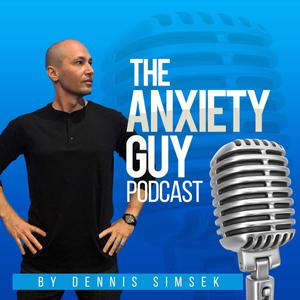 The Anxiety Guy Podcast
The Anxiety Guy Podcast
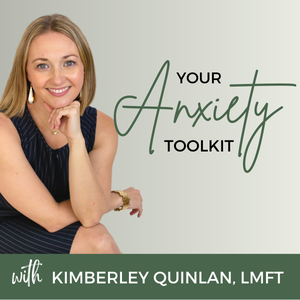 Your Anxiety Toolkit - Anxiety & OCD Strategies for Everyday
Your Anxiety Toolkit - Anxiety & OCD Strategies for Everyday
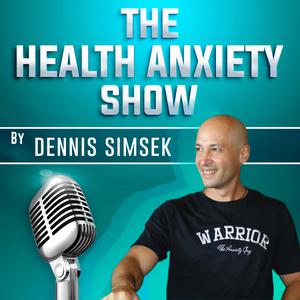 Health Anxiety Podcast Show
Health Anxiety Podcast Show
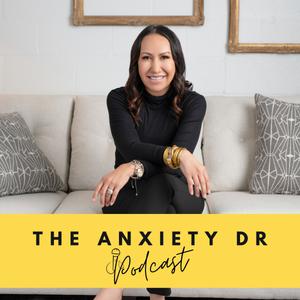 The Anxiety Dr. Podcast
The Anxiety Dr. Podcast
 The Anxiety Chicks
The Anxiety Chicks
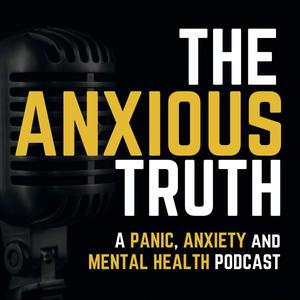 The Anxious Truth - A Panic, Anxiety, and Mental Health Podcast
The Anxious Truth - A Panic, Anxiety, and Mental Health Podcast